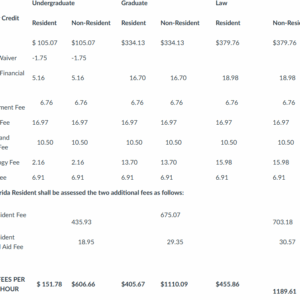| February 12th, 2016
A Free Pass: The Exploration of Athletic Privilege
By: journeymagazine

Words By: Jason Maxwell
There have been a great deal of instances in the past year alone where notable athletes have committed a crime and were able to avoid severe punishment. Athletic privilege is a stigma that seems to escape societal discussions but is becoming more prevalent at every level for athletes today.
In Tallahassee, Florida State University athletes have been in the news multiples times over the past few years – Dalvin Cook and De’Andre Johnson, who were both arrested for domestic violence and Jameis Winston, who was caught stealing crab legs from a local Publix.
According to the Tallahassee Police Department, 10 Florida State football players have been arrested dating back to 2006. Despite some of them being incarcerated, they still have had an opportunity to play in the National Football League.
Former wide receiver for FSU Rashad Gholston, has been able to experience athletes evading punishment.
“There has been times when I have been with a few teammates and have seen the authorities give them a pass,” Gholston said.
Time and time again, athletes commit serious offenses and are giving minimum sentencing or are not sentenced. This isn’t just an issue that colleges sports programs and the NFL, privilege is being given to athletes in grade schools as well.
Former defensive back for Florida A&M University, Donald Jackson saw first-hand the athletic privilege in high school.
“I’ve played with a few people back in high school that are in the NFL now and there has been times they were in an altercation and police would just take them home,” Jackson said.
ESPN has reported that the University of Florida’s basketball and football teams had 24 percent or a total of 80 players named as suspects in over 100 crimes since 2009. 56 percent of those cases were either dropped or the players were not prosecuted.
As an an athlete, avoiding jail time isn’t the only privilege that athletes receive. It starts in their hometown when they are placed on a high pedestal and given special treatment. Offensive Coordinator for Miramar High School’s football team Ivan McCartney, can attest that being an athlete takes you places where others can’t go.
“When I was playing sports I had teammates that were able to get into clubs at a young age just because the people knew who they were,” McCartney said.
It is evident that when these high school students go to play football in college and, possibly, the the professional level, they carry their privilege with them. Coach McCartney is conflicted about what to tell his players now in order to avoid problems.
“Sometimes I feel like a hypocrite because I was privileged to do certain things but I teach my team to stay away from that can possibly get them in trouble,” McCartney said.
For football players like Johnny Manziel, former quarterback for the Cleveland Browns, who continue to be in the news for doing something wrong, coaches, institutions, law enforcements and even people in the cities can be to blame.
Jackson believes that players can not be at fault for not following rules when it has always been excused.
“You cannot expect for athletes to have good behavior when they have always received praise from the places that they are raised even when they were wrong,” Jackson said.
It is apparent that the NFL has noticed this trend and is putting rules in place to stop it by implementing some new disciplinary actions. According to ESPN.com the NFL has announced that they will not be allowing any collegiate athletes who has a felony, misdemeanor or refuses to submit a background check into any NFL related events.
“I am glad they have decided to do this because it will make it easier to keep my players out of trouble,” McCartney said. “They’ll want to stay out of trouble because they do not want to throw away that opportunity of living out their childhood dreams.”







